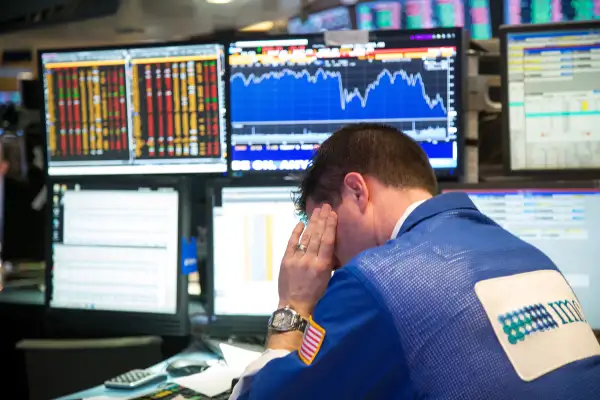When Dow 15,000 Looks Pretty Good
Money is not a client of any investment adviser featured on this page. The information provided on this page is for educational purposes only and is not intended as investment advice. Money does not offer advisory services.

With U.S. markets off to a rough start this year, I'm getting the concerned calls and emails I usually get in such a downturn. Clients ask whether their investments are okay. Friends and relatives ask what they should do.
Over the years, I’ve learned that my best response is usually a variation of the same advice: "This will pass, and eventually the market will come back."
Recently, however, this advice didn’t fit the situation.
I ran into a good friend of mine I hadn’t seen in a few years. After our initial pleasantries, she said that she had to come see me in order to discuss her retirement account. I immediately thought her portfolio values must have fallen with the recent downturn, so I asked what was happening with her investments.
She didn't answer my question. Instead, she responded in a slightly raised voice as if asking me to confirm what she already knew: "The market is around 15,000, right?”
I wasn’t sure of the exact close for the day, but I knew it wasn’t good. I asked her how much her portfolio was down. I assumed it had fallen a lot.
Read Next: The Nasdaq is in Free Fall. Is Now the Time to Buy?
She wasn't invested in the market at all, she told me. She had sold everything during the last financial meltdown, when the market was at 8,000, and had never gotten back in. From her standpoint 15,000 was actually pretty good—had she stayed invested.
That was not what I was expecting to hear and I definitely couldn’t say, "Don’t worry. The market will fall back to 8,000."
It is often emotions that lead the average investor to make decisions to buy or sell, and it is frequently news headlines that drive their emotions. I’m sure we’ve all read studies on how the average investor's portfolio tends to underperform the market because people buy when the market is high and sell when it’s low. My friend was anecdotal evidence and now looking for guidance.
As she shared her story, I was silently asking myself, "Is this a buying opportunity, or should she wait?" I couldn’t offer her any advice, because I didn’t know her goals or her timeframe.
She sold in 2008 because something internal or someone else had told her, “Get out of the market now!” And that's how the damage was done.
As my friend started to walk away, I felt a sense of urgency. I wanted to shout, "Get back in now!" I didn’t. Instead I said, "You need to come see me ASAP."
----------
Frank Paré is a certified financial planner in private practice in Oakland, California. He and his firm, PF Wealth Management Group, specialize in serving professional women in transition. Frank is currently on the board of the Financial Planning Association and was a recipient of the FPA’s 2011 Heart of Financial Planning award.
